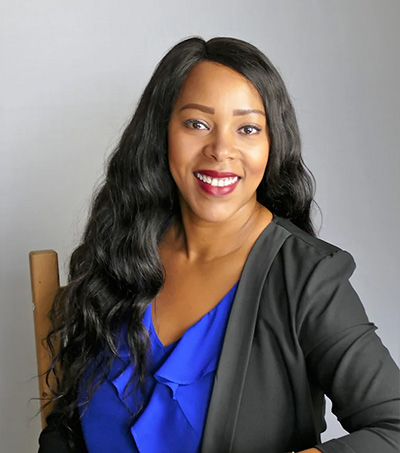Nurturing a Path to FulfillING Relationships
This post and episode contain adult subject matter and some readers and listeners may be triggered by this content. Reader and listener discretion is advised.
Throughout our journey through life, relationships form the very fabric of our experiences and deeply impact our overall wellbeing. They can bring immense joy, support, and fulfillment, but unfortunately, not all relationships are positive or nurturing. Dysfunctional relationships, with their hallmark traits of toxicity, abuse, or perpetual conflict, can exact a heavy toll on our emotional and mental health. When entangled in such harmful connections, it may feel overwhelming to break free and find a path towards happiness.
Navigating dysfunctional relationships requires a keen understanding of their underlying dynamics. Toxicity in relationships can manifest in various ways, such as emotional manipulation, lack of trust, and power imbalances. Such negative patterns can leave us feeling emotionally drained, isolated, and struggling to maintain a sense of self-worth. Recognizing the signs of dysfunction is a crucial first step towards initiating positive change and reclaiming our emotional wellbeing. Moreover, understanding how past experiences and traumas may shape current relationships provides valuable insights into breaking free from harmful patterns that we may be repeating.
“You are not the darkness you endured. You are the light that refused to surrender.”
- John Mark Green
The path to overcoming dysfunctional relationships requires a multi-faceted approach, encompassing introspection, self-care, and effective communication. Setting healthy boundaries and communicating needs assertively are crucial steps in building resilient relationships. Additionally, seeking professional support when (or indeed if) possible, whether from therapists or coaches, can provide invaluable guidance and tools to navigate the complexities of challenging relationships.
Empowering Relationships with Anne Hellgren
Anne Hellgren, Founder of Anne Hellgren Coaching and a renowned Relationship Expert, offers invaluable insights into transforming relationships and improving various areas of life. With her expertise, Anne helps clients gain the confidence, clarity, communication skills, and mindset needed to cultivate meaningful connections.

Having experienced her share of past bad, abusive, and toxic relationships, as well as navigating a contentious divorce, Anne's level of understanding and empathy resonates deeply with those she assists. Through her journey of personal growth, she blends her life experiences with her qualifications, including an MSc in Occupational and Organizational Psychology and a BSc in Counselling Psychology, as well as NLP and Time-Line Therapy practices. Anne's unique approach allows her to create tailored coaching programs that empower clients to overcome their specific challenges.
Understanding Dysfunctional Relationships
Before we set out on the path to heal and grow, it's important to truly understand why our relationships might not be as healthy as we want them to be. These challenging connections can feel like they have an unequal balance of power, and they might lack the trust and respect we all deserve.
Sometimes, there is a lot of emotional pressure or tricky mind games involved, and talking openly can be tough. These tough dynamics often have roots in our past – maybe experiences that left scars, arguments that were never resolved, or habits we learned a long time ago that just keep causing problems. It's like those patterns got stuck and keep showing up in our relationships.

Extensive research has shed light on how those of us with a history of dysfunctional relationships may struggle to establish and recognize healthy boundaries. Unknowingly, we may find ourselves caught in a cycle of repeating harmful patterns in subsequent relationships. The detrimental effects of toxic relationships extend beyond the emotional realm and can lead to negative psychological consequences such as anxiety, depression, and a diminished sense of self-worth. Recognizing the impact of these relationships on our mental health is essential to foster personal growth and healing.
By acknowledging the factors that contribute to dysfunction, we can begin the process of breaking free from these detrimental patterns. Armed with self-awareness and a commitment to positive change, we can pave the way towards nurturing healthier, more fulfilling connections in our lives.
The Science Behind Dysfunctional Relationships
Insights from psychology and neuroscience provide a deeper understanding of the intricate dynamics at play within dysfunctional relationships. Neuroscientists have made significant discoveries on how repeated exposure to toxic behavior can impact the brain, particularly affecting emotional regulation and decision-making processes. In cases of abusive relationships, these brain changes can perpetuate the cycle of abuse, making it challenging for us to extricate ourselves from harmful patterns and seek healthier alternatives.
Attachment Theory, a cornerstone of relationship research, offers valuable insights into the enduring influence of past experiences on present connections. We each develop attachment styles early in life, which significantly impact our approach to relationships. Insecure attachment styles, such as anxious or avoidant, can contribute to dysfunctional relationship dynamics. Those with anxious attachment may experience heightened anxiety and fear of abandonment, while those with avoidant attachment might struggle with emotional intimacy and vulnerability. Understanding these attachment styles provides a lens through which we can better comprehend how past experiences shape current interactions.

By drawing from the knowledge gleaned from psychology and neuroscience, we can gain valuable insights into the roots of dysfunctional relationships. Becoming aware of this can help us begin the process of self-exploration and healing, seeking to transform harmful patterns and embrace healthier, more secure attachment styles. Recognizing the impact of past experiences and brain changes can also empower us to proactively build fulfilling, authentic connections based on mutual respect and emotional wellbeing.
Overcoming Dysfunctional Relationships
For those seeking to transform dysfunctional relationships into flourishing and harmonious connections, the significance of incorporating effective strategies cannot be overstated. To embark on this transformative journey, you may consider:
Navigating Within
Begin by looking within and becoming more aware. Take a moment to see how past experiences might be shaping your present relationships. Through mindfulness, uncover the triggers and reactions that create your emotional landscape.
Drawing Healthy Boundaries
Creating healthy boundaries is crucial in any relationship. It means expressing your needs and desires, ensuring your emotional wellbeing is a priority. Prioritize open and honest conversations to build trust and show respect.
Seeking Guidance
Asking for help is a valuable step on this journey. If possible, reach out to a qualified therapist or coach who can offer insights, tools, and strategies to handle the challenges of dysfunctional relationships with more confidence.
Nurturing Your Inner Self
Making self-care a priority is vital for growth. Engage in activities that bring you joy and practice mindfulness to understand yourself better. Allocate time to reflect and give a boost to your emotional wellbeing.

Building Empathy and Communication
Cultivating empathy and practicing compassionate communication with your partner or those involved in the relationship helps you connect on a deeper level. By truly listening and understanding, you can strengthen the foundation of a healthy connection.
Breaking the Cycle of Dysfunctional Relationships
Let's break free from old habits. Choosing healthier behaviors and responses can be a game-changer. By replacing negative patterns with positive ones, you set the stage for personal growth and transformation.
By putting these pieces together and focusing on our emotional wellbeing, we can build a strong foundation for nurturing fulfilling and positive relationships in our lives. Remember, the journey to healing and empowerment begins from within. With dedication and a positive attitude, we can embark on a path of transformation and change.
The TAKEAWAY
In the intricate realm of navigating dysfunctional relationships, it's vital to grasp their intricate dynamics. Toxic behaviors like manipulation and mistrust can deeply affect our emotions and self-esteem. The key is recognizing these signs - the very first step towards fostering positive change and reclaiming our emotional wellbeing. By acknowledging past traumas, we gain invaluable insights that guide us in breaking free from harmful cycles.
The insights drawn from psychology and neuroscience shine a revealing light on the mechanics of dysfunctional relationships. Experiencing toxicity repeatedly leaves a mark on our brain function, influencing how we feel and make choices. Attachment Theory adds another layer, showing how our earliest connections shape our approach to intimacy and how open we are to being vulnerable.

Applying this psychological wisdom ignites a journey of self-discovery and healing. It means shifting away from damaging patterns and building a foundation of mutual respect. We begin by understanding the triggers and patterns that steer our relationships. Setting healthy boundaries becomes a fortress for our emotional wellbeing.
Seeking guidance from professionals becomes a compass as we navigate the tumultuous waters of strained relationships. We move forward, armed with empathy and honed communication skills, forging connections that are authentic and heartfelt.
The path to break negative cycles is a growth process, leading to flourishing relationships. It all starts within us, with a dedicated commitment and an optimistic perspective.
Equipped with the tools of transformation, we are empowered to rise above dysfunctional relationships, nurturing connections that are enriching, considerate, and nurturing.
https://thejornipodcast.com/episode-85-overcoming-dysfunctional-relationships-with-anne-hellgren
